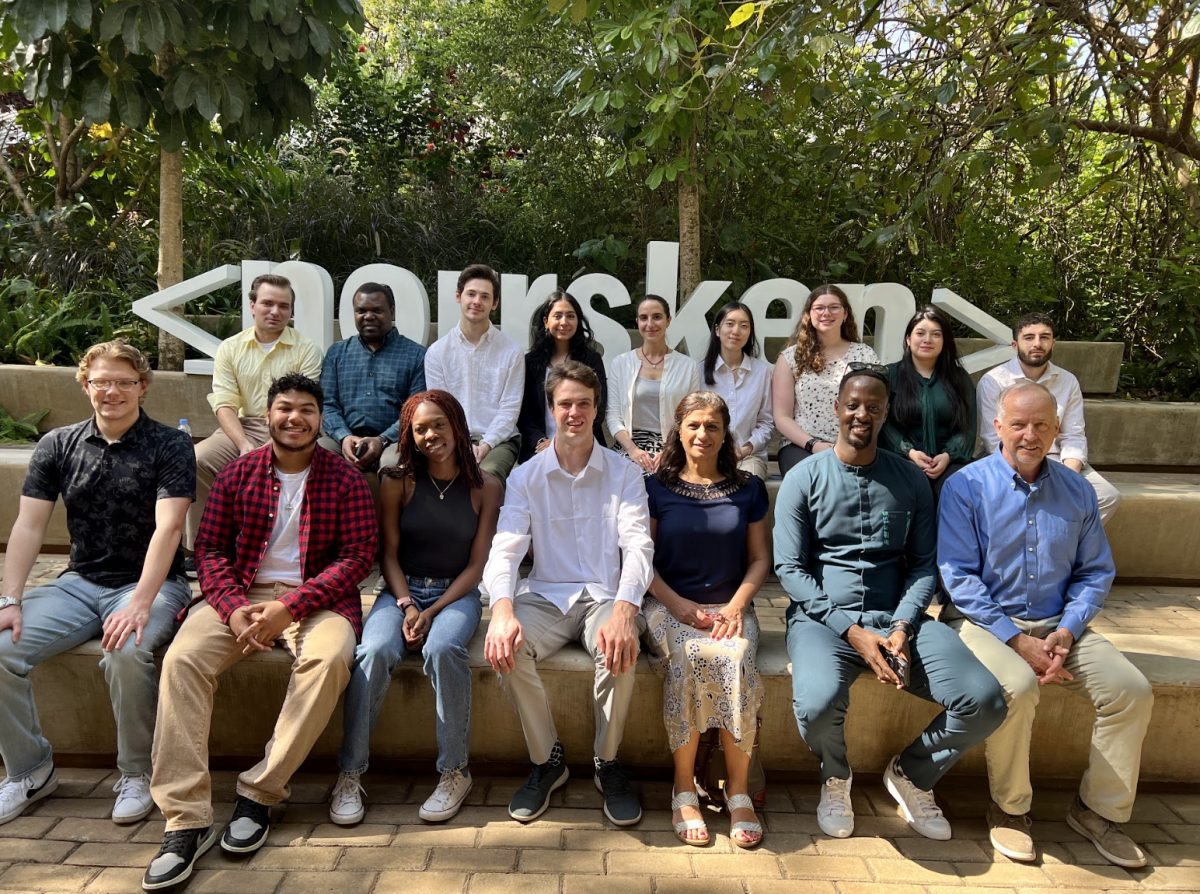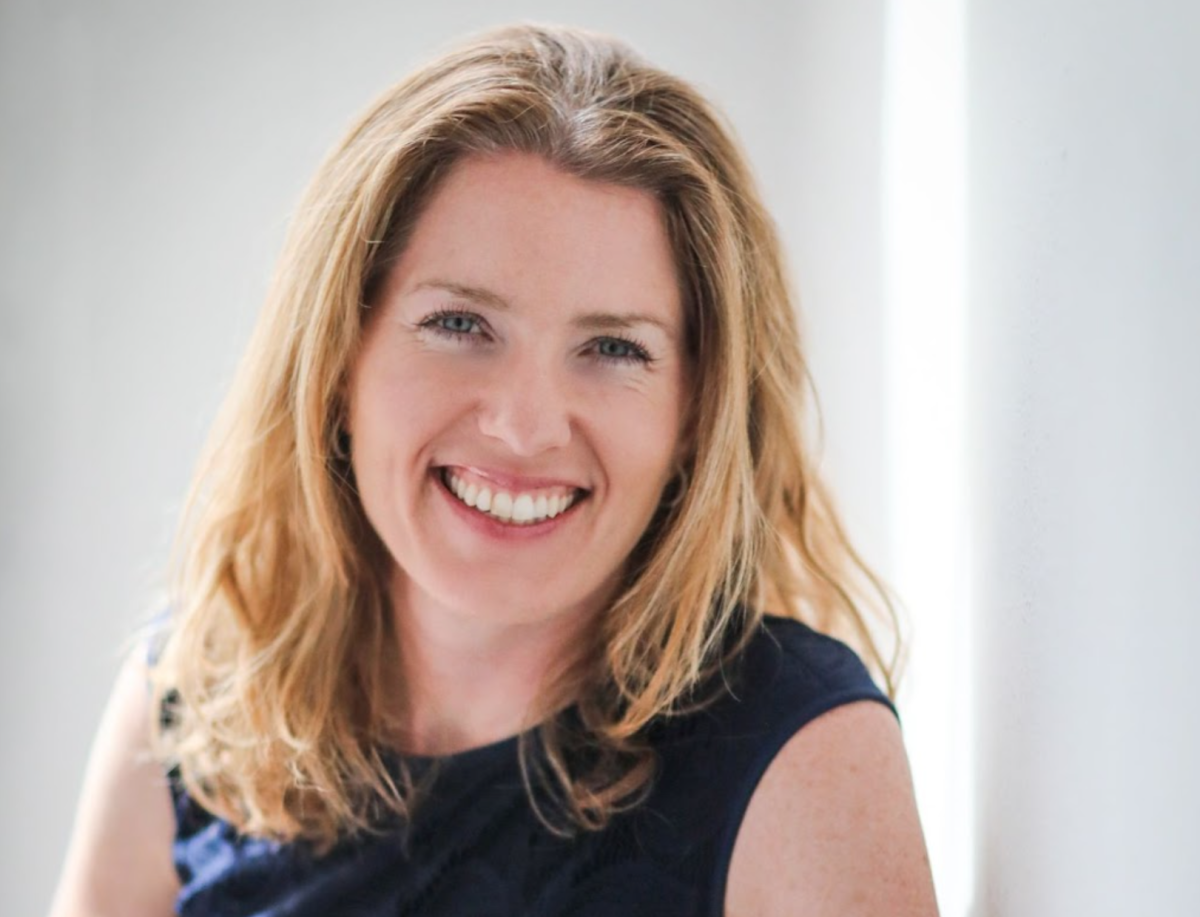Fordham University’s Gabelli School of Business (GSB) sent a group of students in a global immersion course to Rwanda in East Africa over spring break to promote entrepreneurship in the country and assist local entrepreneurs and businesses.
The class, “Global Immersion: Entrepreneurship and Innovation in Rwanda,” is taught by professor and Director of Entrepreneurship and Social Innovation Concentrations Dennis Hanno. It allowed 12 students the opportunity to spend time in Rwanda from March 20-29. The group visited local businesses and landmarks in Rwanda to examine the impact of Rwanda’s history, politics, culture and economy on its entrepreneurial ecosystem.
The course paired businesses and entrepreneurs in Rwanda with Fordham students while allowing them to learn more about their assigned businesses and startups. The group also provided insights on day-to-day challenges while targeting specific problems that the businesses currently struggle with.
Since the Rwandan genocide in 1994 took the lives of nearly 1 million Rwandans, the country’s population has made significant strides to improve the country’s quality of life and improve other aspects of day-to-day life such as economic reconstruction.
Economic reconstruction was one element of the course’s purpose, as much of the coursework was spent preparing for the group’s time in Rwanda. From culture and politics to traditions and economics in the country, the group traveled to Rwanda after spending months learning about the country’s history and current state.
However, the most significant portion of the class centered on analyzing the challenges facing Rwanda’s startups, focusing on developing innovative solutions while adding lasting value to businesses.
When on the ground in Rwanda, the group engaged in several meetings with their assigned entrepreneurs and hosted in-depth conversations about business operations in Rwanda, specific targets and goals that the businesses have and also began to assemble suggestions for a final proposal that each group will deliver to their consulting clients in late April.
Philip Zghaib, GSB ’26, reflected on his time in Rwanda, saying, “The excitement was palpable for the potential of Rwanda to be a hub for something much bigger than itself, and that came through clearly in the ideas and energy we received.”
Before being paired with students, entrepreneurs in Rwanda submitted applications to be part of the Fordham Innovation Consulting Experience and outlined specifics about their business type and the goals they hope to achieve. After being accepted, students in the class were then assigned to their entrepreneurs.
The businesses ranged from Afrikabal, a fintech and agritech startup whose purpose is to address food insecurity and enrich farmers in Rwanda, to another business named Flove. This Rwanda-based lifestyle brand employs teenage mothers in Rwanda to craft eco-conscious handbags.
Along with the 12 students who went on the trip, the group was led by Hanno, the Dean of International Student Support and Global Initiatives Beatriz Picard and Assistant Dean of Global Initiatives and Partnerships Hanaa Fawzy.
Outside of their consulting engagements in Rwanda, students also had the opportunity to immerse themselves further in Rwanda’s culture and experience all the country offers. On one of the trip’s excursions, students spent an entire day on a safari at Akagera National Park Safari. Students also visited two major entrepreneurship hubs: Norrsken House Kigali and Westerwelle Startup Haus Kigali.
Additionally, the group visited the Kigali Genocide Memorial, where an estimated 250,000 victims of the Rwandan genocide are buried, and visited the African Leadership University (ALU) where students engaged in the very first ALU-Fordham Entrepreneurship Symposium.
Danielle Zhong, GSB ’26 spoke about her time in Rwanda with the group. “My experience in Rwanda was eye-opening and insightful. As a class, we did some preparation in understanding the political and social landscape of Rwanda, but visiting the Kigali Genocide Memorial and reading the personal narratives from Rwanda’s past political strife and violence made the country’s past even more difficult to digest.”
“A memorable experience was after the memorial when we were commuting in our bus to the newly-built BK Arena, which was an architectural feat that encapsulated how far Rwanda has come since the genocide,” said Zhong.
Although this was the first group of Fordham students that Hanno led on a trip, he has previously hosted a number of trips through his tenure in higher education, having previously been the provost and dean at Babson College and a professor and administrator at the University of Massachusetts Amherst.
Hanno is also the founder and president of IDEA4AFRICA, where, since 2000, he has taken hundreds of college and university students, alumni, staff and professors to sub-Saharan Africa to teach entrepreneurship to high school students, community members and small business owners.








































































































































































































